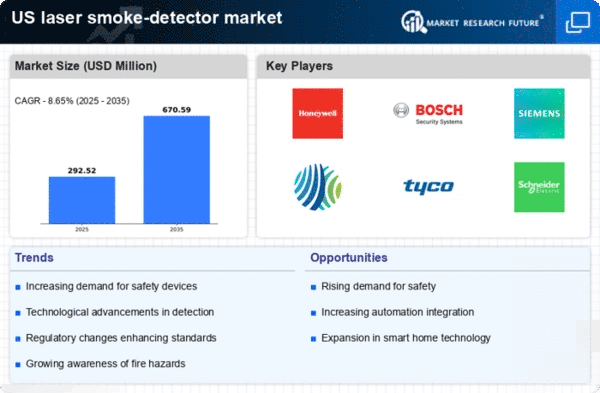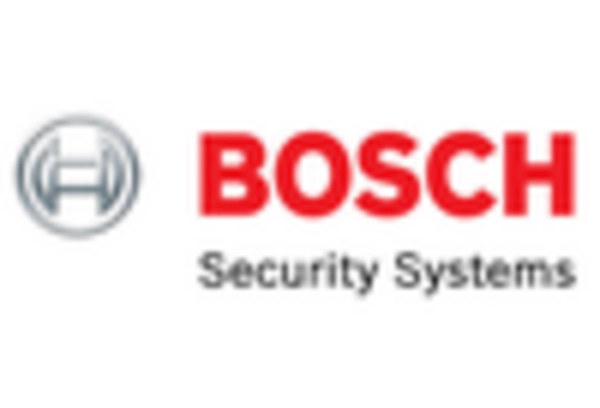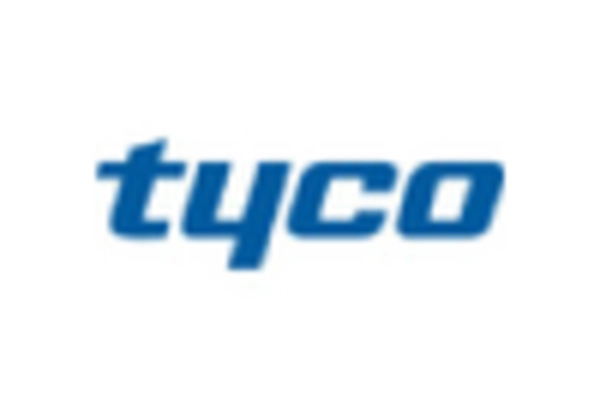Rising Awareness of Fire Safety
The increasing awareness of fire safety among consumers and businesses is a pivotal driver for the laser smoke-detector market. As incidents of fire-related accidents continue to be reported, there is a growing emphasis on preventive measures. This heightened awareness is leading to a surge in demand for advanced smoke detection systems, particularly those utilizing laser technology. the laser smoke-detector market is expected to witness a growth rate of approximately 8% annually as more individuals and organizations prioritize safety. Furthermore, regulatory bodies are also advocating for stricter fire safety standards, which further propels the adoption of laser smoke detectors in residential and commercial settings.
Growth in Smart Home Integration
The integration of laser smoke detectors into smart home systems is emerging as a significant driver for the market. As consumers increasingly adopt smart home technologies, the demand for interconnected devices that enhance safety and convenience is on the rise. Laser smoke detectors, which can be seamlessly integrated with smart home systems, offer features such as remote monitoring and alerts via mobile applications. This trend is likely to propel the laser smoke-detector market, with forecasts suggesting a compound annual growth rate (CAGR) of around 10% in the coming years. The appeal of smart technology in enhancing home safety is expected to attract a broader consumer base.
Regulatory Compliance and Standards
Regulatory compliance and standards significantly influence the laser smoke-detector market. In the US, various safety regulations mandate the installation of smoke detectors in residential and commercial properties. These regulations are becoming increasingly stringent, necessitating the use of advanced smoke detection technologies. Consequently, manufacturers are compelled to innovate and enhance their products to meet these standards. the laser smoke-detector market will benefit from this trend, as compliance with regulations often leads to increased sales. It is estimated that adherence to these safety standards could boost the market by approximately 15% over the next five years, as more properties upgrade their fire safety systems.
Technological Innovations in Detection
Technological innovations play a crucial role in shaping the laser smoke-detector market. The development of sophisticated laser detection systems enhances the accuracy and speed of smoke detection, making them more reliable than traditional methods. These advancements include the integration of artificial intelligence and machine learning algorithms, which allow for real-time monitoring and analysis of smoke particles. As a result, the laser smoke-detector market is experiencing a notable increase in demand, with projections indicating a market value exceeding $1 billion by 2027. The continuous evolution of technology in this sector is likely to attract more consumers seeking efficient and effective fire safety solutions.
Increased Investment in Fire Safety Solutions
The growing investment in fire safety solutions by both public and private sectors is a notable driver for the laser smoke-detector market. Organizations are recognizing the importance of robust fire safety measures, leading to increased funding for advanced detection systems. This trend is particularly evident in commercial buildings, where the implementation of state-of-the-art fire safety technologies is becoming a priority. The laser smoke-detector market stands to gain from this influx of investment, with estimates indicating that spending on fire safety solutions could rise by 20% over the next few years. This financial commitment underscores the critical role of effective smoke detection in safeguarding lives and property.
















